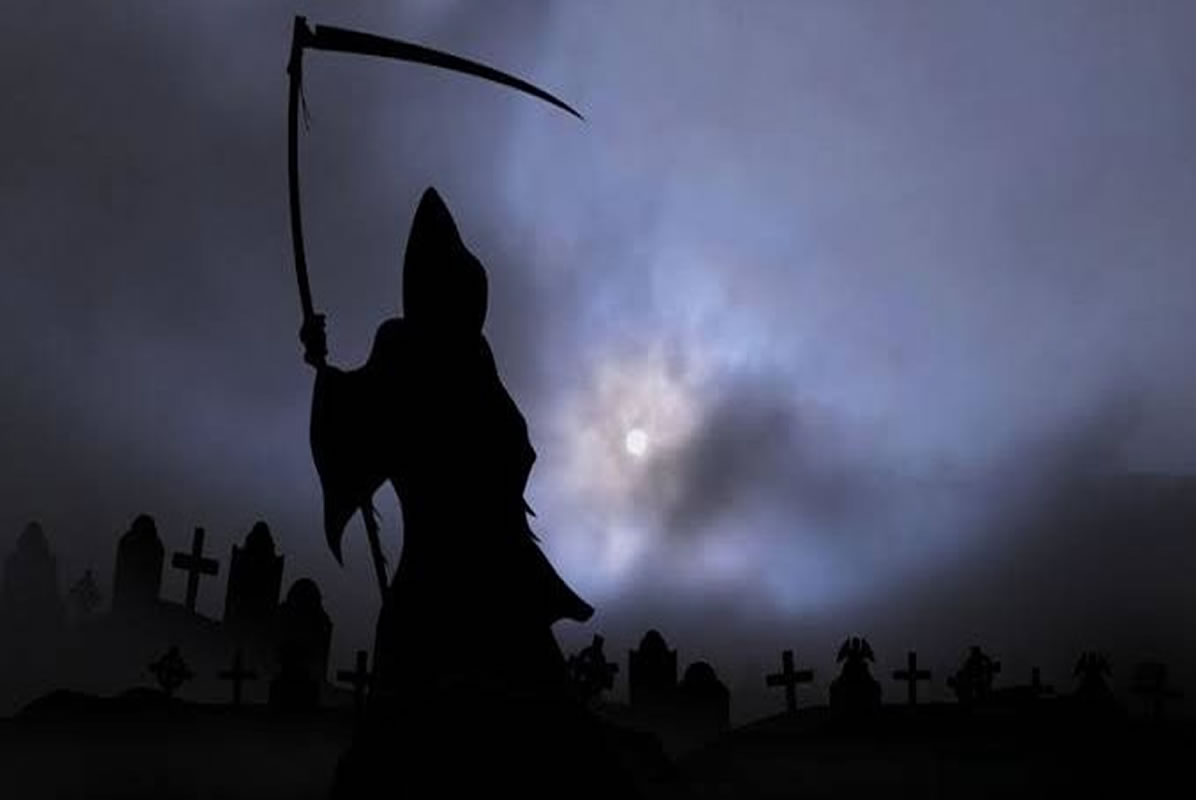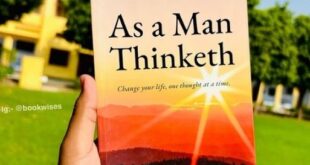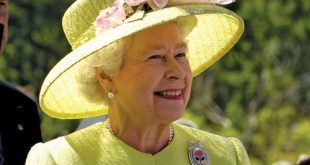“While COVID-19 may have brought awareness of the certainty of death and our mortality, many societies have used that awareness as a pathway to clarify purpose and advance public good. This has not happened in Nigeria..”
Last night in Ilorin, Kwara State, I attended the posthumous 72nd birthday of Prof. Mary Ebun Modupe Kolawole and will be at the Wake Keep/Commendation service this evening. The late Professor of Literature and Women’s Studies and her husband, also a Professor but of Microbiology, were my guardians at the Obafemi Awolowo University, Ile-Ife in the late 80s. After 28 years at Ife where she became the first woman professor of English in the faculty of arts, Mrs Kolawole retired in year 2000 to join the Kwara State University (KWASU) as a contract professor and later, Head of Department of Languages and Literary Studies. She was also the foundation Dean of Post Graduate Studies until she left KWASU in 2017. In her seminal work, ‘Womanism and African Consciousness’, Mrs Kolawole had challenged the notion that African women are ‘voiceless’ while defining ‘womanism’ as the “totality of feminine self-expression, self-retrieval, and self-assertion in positive cultural ways.
The passage of Mrs Kolawole is one of several deaths I have had to come to terms with in the past few months. Young or old, death has struck without discrimination. Some died after a few days in the hospital. Some were involved in accidents. Some just died. I have had to attend more burials than I can remember doing at any point in the past. Incidentally, I imagined it was only me until I had a recent discussion with a group of friends. One said, “If you hear anybody ask, ‘can you remember so and so person?’, you can bet that the next line would be to announce that the person is dead.” Another said, “The commonest phrase these days is, ‘I have just lost someone’ given the rate at which now die.” So, it is as if death has just descended upon our world. Meanwhile, yesterday marked the second year anniversary of the Ethiopian Airlines Flight crash which claimed 302 lives, including my friend, Prof Pius Adebola Adesanmi.
Let’s be clear. Death is never far away from us in Nigeria. Even before the arrival of COVID-19, a string of untimely, and sometimes brutal, deaths from preventable causes had become our lot as a nation. For instance, hundreds of people die annually from electrocution. In a single incident in Port Harcourt in 2010, no fewer than 25 people were killed when, after a heavy rainfall, a cable fell onto a bus and electrocuted passengers and passers-by. I cannot remember the number of times heavy duty containers have skidded off some Lagos bridge, landing on vehicles and crushing to death unfortunate passengers. Again and again, fuel tanker drivers lose control after brake failure, crash and explode, leaving other road users trapped in infernos that have consumed thousands of our people over the years.
Hardly a week passes without a report of death on our waterways where poor vessel maintenance, poor lighting during night voyages, overloading of boats as well as navigational and human errors combine to make water travel in Nigeria a dangerous gamble. Buildings still collapse every other day and take with them several of our citizens, with no consequence for culprits. The Synagogue Church of All Nations (SCOAN) was indicted for “criminal negligence” that led to the death of 116 persons in September 2016 when an uncompleted building collapsed. But nothing has happened to the promoters of the church who are evidently above the law. Six of the victims remain unidentified while 85 were South Africans, 22 Nigerians, two Beninoise and two Togolese nationals. With everyone providing their own electricity through I-Better-Pass-My-Neighbour generator, carbon monoxide (a dangerous invisible, odourless and colourless gas) is still killing Nigerians in their homes, including in some cases, entire families. From lead poisoning to ‘kerosene explosion’, I can go on and on to list the way death stalks our country, even before we factor in Boko Haram insurgents and bandits who are on a mission to take as many Nigerian lives as they possibly can.
However, while life remains cheap in Nigeria, at least we are beginning to pay more attention to our mortality. At no period in history has one been more conscious of death than now. This of course is a global thing. In her piece in January this year, ‘Death Was a Theory, Until I Became a Mother’, Danielle LaSusa recounted an experience with her three three-year-old daughter who shoved a large wad of dental floss into her mouth. “My pulse spiked as I begged her to spit it out. When she grinned and shook her head, I stuck my finger into her mouth to pry her jaws open — like a dog I didn’t want to take to the vet for surgery. With the floss safely in the trash can, I gave a breathless admonition. “Don’t do that, honey. I’m serious. It could be very dangerous,” LaSusa recounted. When her daughter said with childlike innocence, “But I am not going to die”, she retorted sharply: “You might”. It was that interjection and the regret that followed which provoked the piece in question.
The coronavirus crisis, and its cascade of consequences, according to LaSusa, has everyone thinking about death these days. She reflected on a mother-daughter relationship at a time like this: “As a doctor of philosophy who studied existentialism, I’ve been thinking about death for quite a while now. Suddenly, everyday items — blankets, car seats, bookcases, stairs, uncut grapes — became threats. ‘Don’t run in the street, you could get hurt. Don’t rush down the stairs, you could get hurt. Don’t get near the pool, you could get hurt.’ What I really meant was: You could die. It seemed harsh and unfair to introduce a toddler to the concept of her own death before she could even tie her own shoes. But how could you explain the dangers a pre-schooler might face without bringing up the notion of mortality?”
After her narrative as to how conscious we all are now of death, perhaps because we have heard too many stories on the subject in recent days, LaSusa concludes on a sobering note: “Death has come sooner than expected for many this past year, and perhaps by learning to embrace this fragile and exquisite life, while we have it, we might recognize that death has been part of the deal all along. Well before this pandemic started, and long after it ends, new parents will help children not only to walk and talk, but to survive; they are grappling not only with bottles and diapers, but with life and death.”
On a lighter note, my flight to Ilorin yesterday was largely uneventful until we experienced turbulence as we approached the city. Subconsciously, I began to hum that famous Eliza Edmunds Hewitt hymn, ‘Sing the wondrous love of Jesus, Sing His mercy and His grace; In the mansions bright and blessed, He’ll prepare for us a place.’ It was when I got to the chorus, ‘When we all get to heaven, what a day of rejoicing that will be…’ that I suddenly realized the implication and had to quickly change to another hymn. As Peter Tosh once sang, we all want to go to heaven but nobody wants to die!
Perhaps it is incessant media coverage and having to deal with a global pandemic that has led to a situation in which many of us now reflect on the fragility of life. Dan Cable and Francesca Gino explain it better in ‘Coping with ‘Death Awareness’ in the COVID-19 Era’, where they argue that the COVID-19 pandemic has brought many of us not only to the awareness of our impermanence but also that we are vulnerable—a fact that we push out of our minds in less threatening times. But they also see a positive. When we can manage to reflect on death without succumbing to anxiety about it, the duo contend, “we are likely to make choices that help us make our best contributions and improve the world rather than hunkering down or lashing out.”
In the uncertain times in which we live, leadership is being redefined in many countries. But there are also conversations about responsible and responsive citizenship. Since we live in a society that downplays tragedies and hardly learn lessons from experience, Nigerians are looking at numbers and comparing Covid-19 victims with those who have been killed by Boko Haram, bandits and sundry criminal cartels that operate freely across the country. And with that, we miss the consciousness of our mortality that is teaching others to course correct and take both personal and corporate responsibility for the good of their society.
While COVID-19 may have brought awareness of the certainty of death and our mortality, many societies have used that awareness as a pathway to clarify purpose and advance public good. This has not happened in Nigeria given the mundane issues that daily engage national attention. Perhaps because we do not have many curious leaders (at critical levels) who are willing to ask the right questions and make the tough calls, we have not benefited from the experience of the past one year. Neither has our society. It is now time for that to happen at the personal, group and leadership levels. Hopefully any benefit we stand to gain amid the pains of the COVID-19 pandemic are not lost on us.
My condolences to Prof Deboye Kolawole, Folake and Temilolu. And all the people who have lost their loved ones in recent times. May God comfort them.
Bishop David Abioye @ 60
In his book, ‘Spiritual Apprentices’ which deals with the concepts, process, demands, pitfalls, and rewards of Ministry, Bishop David Olatunji Abioye speaks to a very serious issue in Christendom today in which everybody ‘answers the call of God’ without any preparation or training. “If a mechanic is not accredited to handle pieces of iron and plastic until he has been through a regulated, concerted, and well-defined time frame of apprenticeship, why should we ever assume that an individual called to carry an assignment that deals with human destinies can jump into duty without training?”, he asks.
That he is now the 1st Vice President, Living Faith Church Worldwide and Senior Pastor of Living Faith Church, Goshen City—a 15,000 capacity edifice in Abuja, sitting on a 740-acre of land, with over 30,000 worshippers every Sunday—is a reward for Abioye’s uncommon faithfulness not only to God but also to the man he sees as his spiritual father. It takes a man of integrity to say that his God-given assignment is to ensure the fulfillment of another man’s ministry. He met Bishop David Oyedepo in January 1980 at a Campus Christian Fellowship when he was just 19 and the relationship has blossomed over decades. Despite his own stature as a respected man of God, Abioye is content to serve in what he describes as a ‘supportive ministry’ while Oyedepo “deals with major issues. I look into smaller issues to prevent distraction. In all, little or big, I am doing what I’m assigned to, under his calling.”
Abioye has always argued that clerics should not clamour to be president or founder of a church if God did not directly call them. For the past 41 years, he has followed Bishop Oyedepo whom he regards as his mentor and spiritual father despite the fact that there are only six and a half years between them. As the Bishop therefore clocks 60 today, there is no doubt that he is a study in true apprenticeship, stewardship and loyalty, a man whose life and teachings exemplify practical Christianity. In a country where many now found their own church in a manner almost akin to establishing a family business, it is a testimony to the character of Bishop Abioye that he has remained a ‘Winner’. By that, he has demonstrated the genuineness of his call to discipleship and servanthood, as demonstrated by our Lord Jesus Christ.
In addition to his work of ministry, Bishop Abioye is also socially relevant. He and his wife have rendered educational support by renovating classrooms in a number of government and community schools and building new ones as well as supplying furniture and books within communities around Goshen in Nasarawa State. He also inspired and mobilized others in his home town, Erin-Ile in Kwara State, to establish the Moje College of Education. It is typical of the Bishop that he would seek an intervention in the most critical yet neglected area of our national life.
As a man whose ministry is about building the total man, I could understand why the Bishop sought to address the current state of our education, with the aim of fixing it, starting with the training of teachers. At the formal inauguration of the school in April 2018, I was the guest speaker. “When they say three successive generations cannot be poor, as we often say in Yorubaland, we must qualify the saying. Ten generations can be poor if nobody seeks knowledge. The only weapon to break such a generational curse is education. And there can be no education without teachers. Therefore, the significance of this initiative is that it targets the root of the malaise in our educational system and we must commend Bishop Abioye and others for their efforts,” I said at the occasion.
On a personal note, my family has been thoroughly enriched by our association with Bishop Abioye in the past 14 years. Since our arrival in Abuja in 2007, he and his wife, Mary, have taken us under their spiritual wings. They have not only been concerned about our spiritual well-being, they have shown so much care about our material welfare as well. Although we do not attend their church, we buy and listen to the tapes of his sermons that are always inspiring. As he clocks 60 today, I can only wish the Bishop a memorable birthday!
 Gistfox Your News Window To The World.
Gistfox Your News Window To The World.





